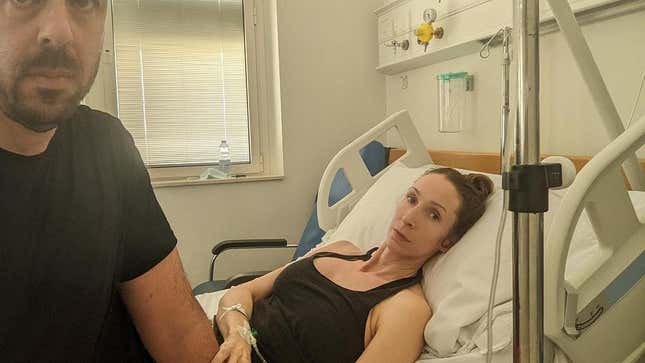American Woman to Be Air-Lifted Out of Malta After Being Denied Life-Saving Abortion
Malta maintains a total abortion ban without exceptions. Andrea Prudente's story offers a harrowing preview of what could come in a post-Roe America.
AbortionPolitics

An American woman in Malta is set to be air-lifted out of the country on Thursday, after seeking an abortion amid emergency, life-threatening pregnancy complications, and being denied care due to the country’s stringent abortion ban. Malta’s laws offer no exceptions to this ban for any reason, rendering it the strictest in the European Union.
The American woman, Andrea Prudente, was on vacation with her partner in the country, and was 16 weeks pregnant when she started bleeding heavily and learned her fetus would not survive. Still, a hospital in Valletta, Malta, insisted that it would not provide her with an abortion or even discuss the procedure with her until she was imminently dying. Of course, medical experts have long argued that waiting until the pregnant person’s life is at stake to provide abortion care is extremely medically risky—if the government were actually concerned with pregnant people’s safety, abortion wouldn’t be banned at all.
Prudente and her husband immediately sought a medical transfer from Malta to the UK where abortion is legal, citing concerns about the risk to Prudente’s life. Following several days of terror and uncertainty, the couple has finally secured an emergency air-lift via their travel insurance to obtain an abortion in Mallorca, Spain, Maltese media reports. Prior to securing the airlift, Prudente told The Guardian she just wanted to “get out of here alive,” and added, “I couldn’t in my wildest dreams have thought up a nightmare like this.”
-

-

-

-

-

-

-

-

-

-

-

-

-

-

-

-

-

-

-

-

-

-

-

-

-

-

-

-

-

-

-

-

-

-

-

-

-

-

-

-








































